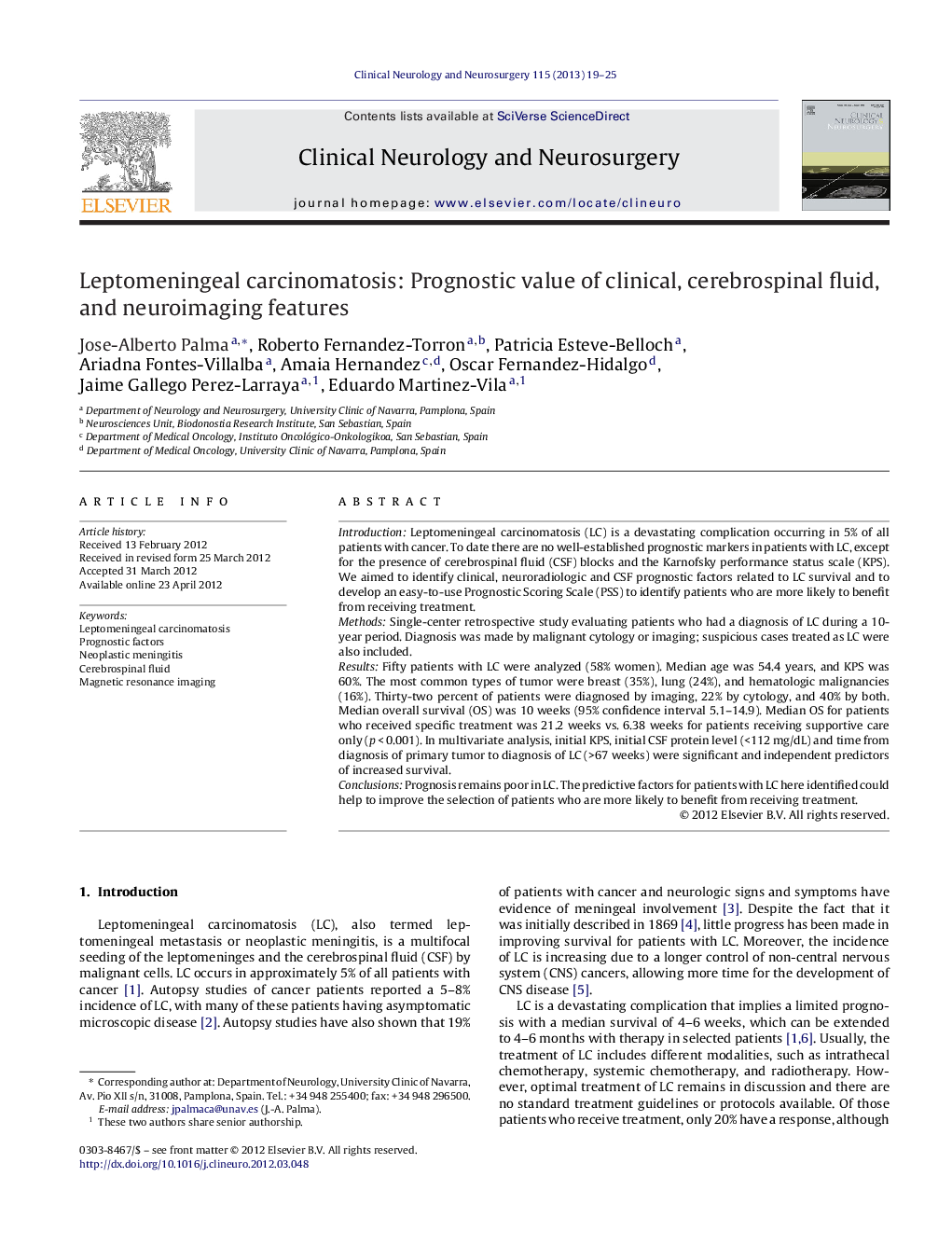| Article ID | Journal | Published Year | Pages | File Type |
|---|---|---|---|---|
| 3040742 | Clinical Neurology and Neurosurgery | 2013 | 7 Pages |
IntroductionLeptomeningeal carcinomatosis (LC) is a devastating complication occurring in 5% of all patients with cancer. To date there are no well-established prognostic markers in patients with LC, except for the presence of cerebrospinal fluid (CSF) blocks and the Karnofsky performance status scale (KPS). We aimed to identify clinical, neuroradiologic and CSF prognostic factors related to LC survival and to develop an easy-to-use Prognostic Scoring Scale (PSS) to identify patients who are more likely to benefit from receiving treatment.MethodsSingle-center retrospective study evaluating patients who had a diagnosis of LC during a 10-year period. Diagnosis was made by malignant cytology or imaging; suspicious cases treated as LC were also included.ResultsFifty patients with LC were analyzed (58% women). Median age was 54.4 years, and KPS was 60%. The most common types of tumor were breast (35%), lung (24%), and hematologic malignancies (16%). Thirty-two percent of patients were diagnosed by imaging, 22% by cytology, and 40% by both. Median overall survival (OS) was 10 weeks (95% confidence interval 5.1–14.9). Median OS for patients who received specific treatment was 21.2 weeks vs. 6.38 weeks for patients receiving supportive care only (p < 0.001). In multivariate analysis, initial KPS, initial CSF protein level (<112 mg/dL) and time from diagnosis of primary tumor to diagnosis of LC (>67 weeks) were significant and independent predictors of increased survival.ConclusionsPrognosis remains poor in LC. The predictive factors for patients with LC here identified could help to improve the selection of patients who are more likely to benefit from receiving treatment.
